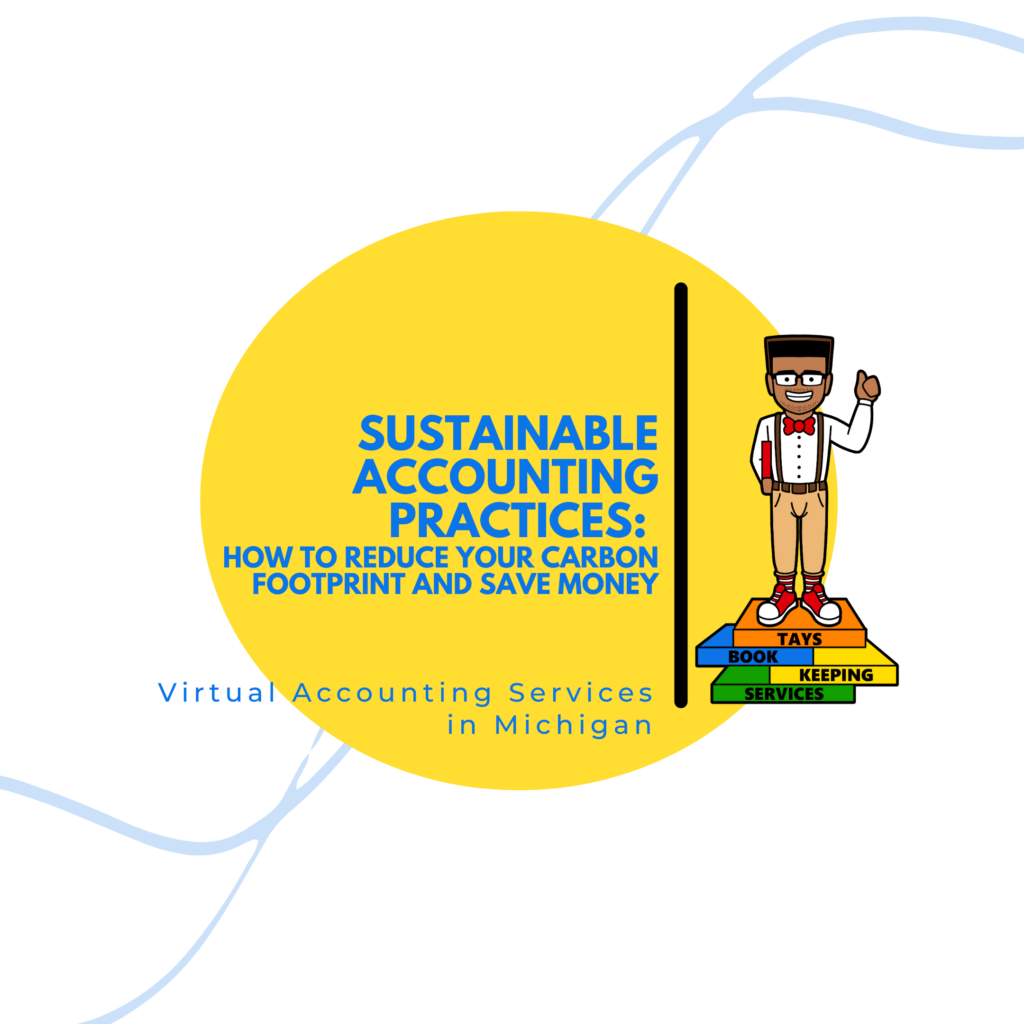Are you looking to reduce your carbon footprint while saving money? Sustainable accounting practices are the key to success.
By taking a few simple steps, such as improving energy efficiency and adopting digital technologies, businesses can not only reduce their impact on the environment but their costs too.
The challenge is understanding how to put these practices into action in an efficient and cost-effective way. In this article, we will provide an overview of sustainable accounting and discuss how it can help business owners save money while reducing their environmental impact.
We’ll explain the different types of sustainable accounting practices, show you how to measure your progress, and provide tips on how to create a more sustainable accounting process. By following our advice, you will be able to maximize your bottom line, while doing your part to contribute to a greener future.
What Is Sustainable Accounting?
Sustainable accounting is the practice of measuring, analyzing and reporting a company’s social and environmental impacts. This accounting approach provides businesses with a way to create transparency and accountability when it comes to their carbon footprint and other sustainability efforts. It also allows companies to demonstrate their commitment to sustainability goals.
Sustainability accounting entails systems, methods, and processes of creating sustainability information for transparency, accountability, and decision-making. This includes things like tracking energy usage, waste production, water consumption, greenhouse gas emissions, and any other environmental impact-driven data. By establishing this baseline data, businesses can then track their performance over time and start making informed decisions on how best to reduce their carbon footprint and save money in the process.
Ultimately, sustainability accounting represents the activities that have a direct impact on society, environment, and economic performance of an organization. It is essential for businesses that want to remain competitive while also being socially responsible. In addition to reducing costs associated with emissions regulations or taxes on carbon emissions, sustainable accounting practices can help organizations create greater value with long-term benefits such as reduced waste production or improvements in operational efficiency.
The Benefits of Sustainable Accounting
Sustainable accounting practices can be incredibly beneficial for businesses who want to reduce their carbon footprint and increase their profitability. By investing in sustainability initiatives, companies can save money through cost savings and efficiencies, as well as drive long-term cost savings through smarter energy use and better resource management.
What’s more, sustainability reporting enhances transparency, which helps companies to better manage reputational risks while also improving their brand image in the eyes of customers. As a result of increased transparency, companies can identify potential cost savings and money-saving opportunities that they may not have been aware of before.
In addition to these financial benefits, the environmental impact of sustainable accounting practices is undeniable. By committing to environmental responsibility and investing in sustainable business practices, companies are making a positive contribution to the global fight against climate change.
Steps to Take in Creating a Sustainable Accounting Plan
If you’re looking to reduce your carbon footprint and save money, the first step is to create a sustainable accounting plan. This will allow you to measure your organization’s success in minimizing its environmental impact and saving money by tracking how much energy and water is being used, and how much waste is generated. Here are some steps you can take to create an effective plan:
Define Your Vision, Mission, and Values
Creating a sustainability vision statement should be one of the first steps in developing a sustainable accounting plan. Your vision should articulate your organization’s long-term sustainability goals and define the mission that will guide them towards achieving those goals. Additionally, creating a statement of organizational values will help guide decision making when it comes to ensuring sustainability is at the forefront of operations.
Create a Sustainability Committee or Green Team
It’s important to create a team or group responsible for identifying opportunities for improvement within the company that would increase sustainability while reducing costs. This team should be made up of staff members dedicated to implementing solutions that will reduce the organization’s environmental impact while increasing efficiency.
Benchmark and Assess Organization
Benchmarking involves analyzing current practices for potential areas of improvement, both in terms of environmental impact and cost savings potential. Assessments should be conducted regularly in order to identify new opportunities for improvement as well as areas where progress has been made since prior assessments were conducted.
Techniques for Reducing Your Carbon Footprint and Saving Money
Environmental conscious accounting practices don’t have to be all or nothing. In fact, there are many simple steps you can take to both reduce your carbon footprint and save money. Here are a few tips for getting started:
Donating Money to Sustainable Projects
Donating money to sustainable projects such as supplying solar energy or planting trees can offset emissions caused by flying and other activities that contribute to climate change. Not only is giving back great for the environment, it can also help save on taxes.
Making Your Home More Energy Efficient
Making your home more energy efficient – through things like switching out lightbulbs or investing in sustainable heating systems – can not only help save the environment, but also money on energy bills over time.
How to Keep Track of Sustainable Accounting Practices
Keeping track of your company’s sustainability practices can be difficult as your business grows. Fortunately, there are several steps you can take to make it easier.
Cloud-Based Accounting
One way to track and enhance corporate sustainability is to use cloud-based accounting. These systems allow you to quickly and easily access all of your company’s financial data in one place, making it easy to identify where and how investments in sustainability are being made.
Major Accounting Firms
Major accounting firms are now tracking the development of international sustainability standards, such as the Global Reporting Initiative (GRI) framework, so that companies can more accurately measure their progress towards a sustainable future.
Waste Tracking
Waste tracking is another important part of successful corporate sustainability practices. By using cloud-based systems to track and analyze your company’s waste habits, you can identify areas where improvements could be made, or wasteful activities could be eliminated. This will help you reduce emissions and save money in the long run.
Tips for Ensuring Tax Compliance When Filing Business Taxes in Detroit
Tax compliance is essential for businesses to remain in good standing and continues to be one of the main areas that employers must focus on when reducing their carbon footprint. Here are a few tips to help make sure your business is tax compliant when filing business taxes in Detroit:
Registration Requirements
If you are withholding City of Detroit income tax, you must comply with registration and filing requirements. This includes registering with the City of Detroit by filing Form DC-5, and submitting the necessary documents to prove compliance with the registration requirements.
Business Decisions
Business decisions made during the year often have tax consequences, so it’s important to keep track of any changes that have been made. For example, if you decide to close a business location or expand operations into a new area, you will need to register with that jurisdiction in order to remain compliant with their tax regulations.
Withholding Tax
Owners of active and profitable businesses must pay withholding and other trust taxes, such as sales or use taxes. These taxes can be complex and require specialized knowledge for proper compliance. To ensure your business remains compliant with current regulations, it is important to consult trusted advisers who specialize in this area of taxation.
Conclusion
By taking the time to evaluate current practices, businesses can leverage sustainable accounting practices to become more sustainable and reduce their carbon footprint. This process can result in cost savings along with a reduced environmental impact. The key is to look for ways to reduce unnecessary expenses and focus on best practices for creating a more sustainable company. Additionally, businesses should ensure that their tax filing follows all local, state, and federal regulations to remain compliant and stay current with ever-changing tax laws. By taking the necessary steps to reduce their carbon footprint and save money, businesses can make a positive impact on both their operations and the environment.


